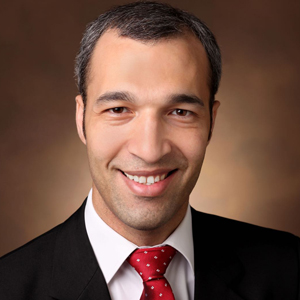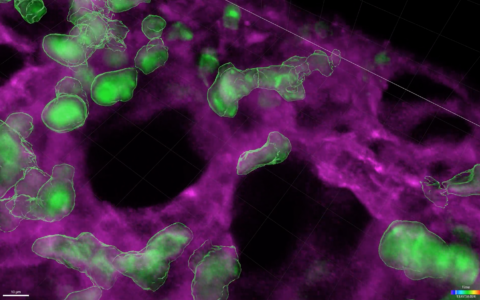With sonograms, genetic tests and other diagnostic technology standing by to examine babies in utero, developmental abnormalities are often detected early in the gestation process.
But an advanced diagnosis does little to enhance the course of treatment after birth if the findings fail to make their way from the mother’s medical record to the specialists who take on the baby’s care immediately after delivery.
“We’ve been approaching the information in charts as protected information, to the extent that when a baby is born, we separated records of the mom from the baby,” said Wael Alrifai, M.D., an assistant professor of pediatrics and biomedical informatics at Monroe Carell Jr. Children’s Hospital at Vanderbilt.
“The biggest issues occur when the mom presents in labor at 2 a.m. without warning; it’s not always clear the baby has a specific condition that needs to be addressed immediately at birth” he added. “Some can have big problems including a risk of death if not acted on promptly, so it is important that the plan made before birth is carried over after birth.”
Some Gaps Occurred
Despite the best efforts of medical specialists to connect in such cases, information crucial for treating an hours-old infant sometimes goes missing or is communicated with significant delays.
“We needed to find a way to carry over some of the data that is important for the fetus and not just start over when the baby is born,” Alrifai said.
Through his overlapping roles as pediatrician, neonatologist and medical director for health informatics, Alrifai was determined to close the gap. He did so by tweaking the medical center’s existing clinical information systems to include a subfile in the mother’s chart with her fetus’s health record, which can transition into the infant’s health record after birth.
“We’ve been approaching the information in charts as protected information, to the extent that when a baby is born, we separated records of the mom from the baby.”
“It may be a simple idea, but it was met with a lot of excitement from everybody in Vanderbilt and at Epic,” he said, referring to Epic Systems Corp., a popular electronic medical records software company used by Vanderbilt University Medical Center and hundreds of the largest healthcare organizations across the U.S. Epic has adopted Alrifai’s concept for its other organizations.
Patient Care Drives Solution
Legal and privacy concerns stymied medical experts in previous attempts to arrange transfer of prebirth records to an infant’s individual files, Alrifai said.
“This move is making communication better and has already saved lives.”
“How do you build records for two different humans in one chart?” he said, describing the conundrum. “Nothing worked.”
But then he came up with the idea for a simple but effective solution: “Let the fetal chart have a place in mom’s chart that can separate and go with the baby after birth.”
Within a year of Alrifai’s tweak to the medical center’s electronic records system, 13 Vanderbilt clinics were using it to improve patient outcomes. Officials at Epic also invited Alrifai to present his solution at a meeting at the company’s home office in Wisconsin.
The change has led to significant reductions in communication errors involving critical patient information regarding infants with congenital heart disease at the Neonatal Intensive Care Unit at Children’s Hospital, which has 115 beds.
“We have thousands of admissions every year,” Alrifai said. “About half are preemies and about half have complex problems involving heart, lungs and other organs. These are the babies who would benefit most from a cohesive plan made before birth.”
Although Alrifai is receiving much credit and appreciation from his colleagues for his development, no financial rewards or patents are involved. He considers that a nonissue.
“This move is making communication better and has already saved lives,” he said. “For me, that’s as good as it gets.”






